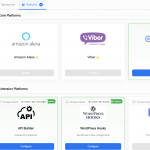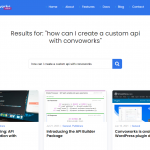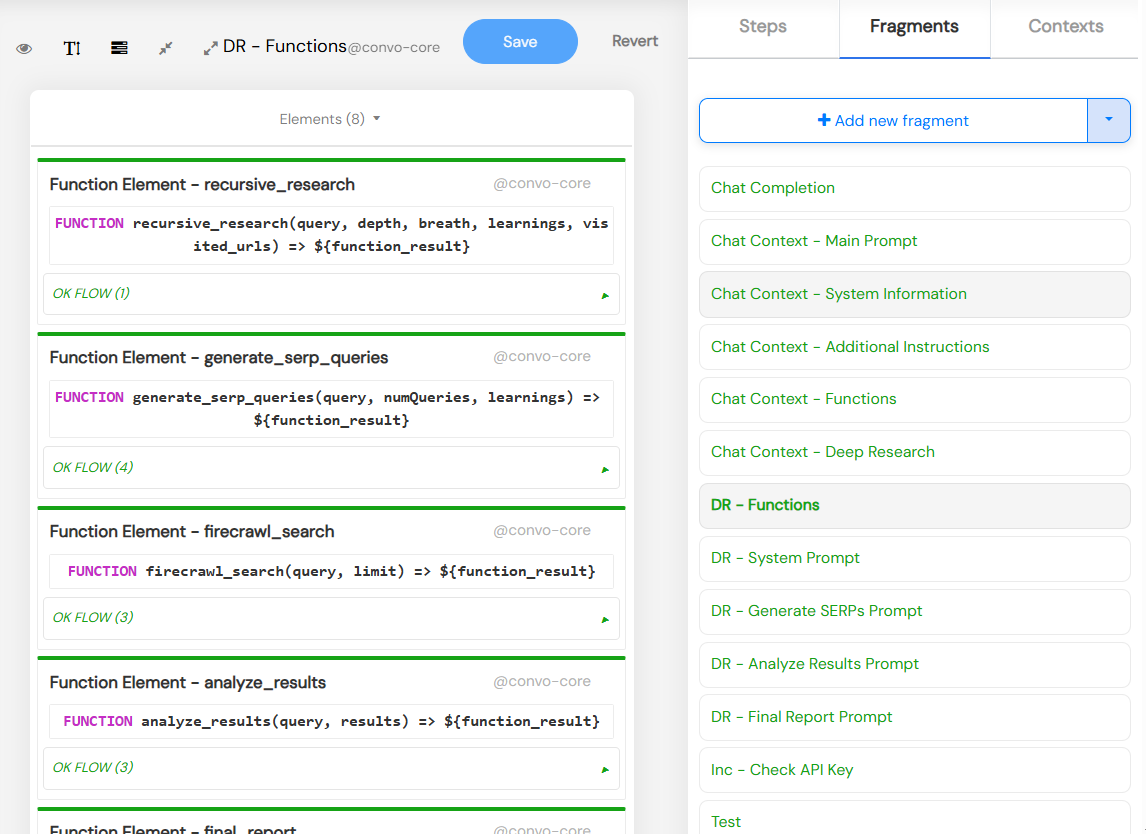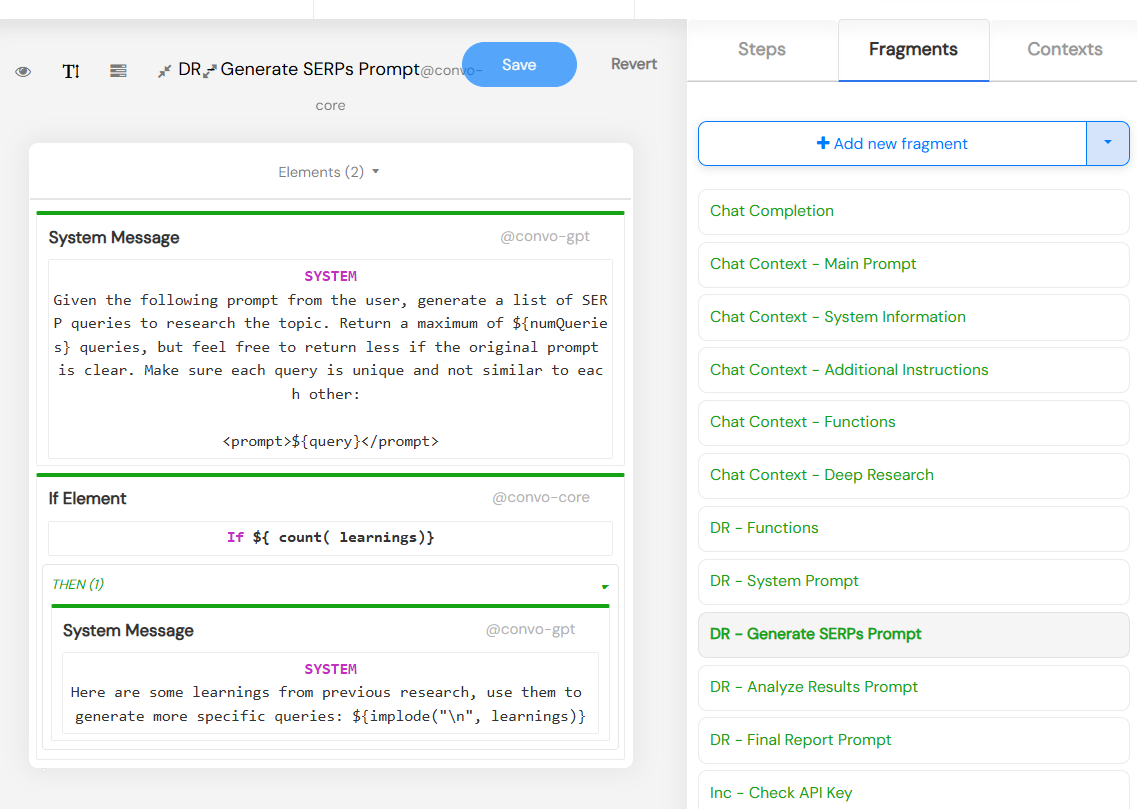
A No-Code Experiment: Bringing Deep Research to WordPress
Deep Research is an AI-powered research assistant that performs iterative, in‑depth exploration of any topic by combining web search, scraping, and large language models. The original project, Open Deep Research, has earned over 15K stars on GitHub for its concise TypeScript command‑line implementation by @dzhng. A community‑driven Python port by @Esteban_Puerta9 (deep-research-py) further expanded its reach.
Our Convoworks fork brings that same recursive research engine into WordPress via a no‑code GPT chat interface. With just a few clicks you can generate search queries, fetch and analyze web content, and automatically save the final report as a configurable WordPress post. This experiment demonstrates how complex AI‑driven research flows can be built visually – no coding required – unlocking powerful end‑to‑end knowledge automation inside WordPress.
Deep Research: How It Works
This AI‑powered research assistant automates complex, multi‑step investigation by combining OpenAI’s GPT with live web search via the Firecrawl API. The workflow proceeds through six stages:
- Understanding the Research Goal – GPT may ask clarifying questions to narrow the topic before beginning.
- Generating Search Queries – GPT creates targeted search terms to explore breadth of the subject.
- Fetching Web Data – Firecrawl retrieves the top five relevant pages for each query.
- Analyzing Search Results – GPT extracts concise learnings and generates follow‑up questions.
- Recursive Research – Based on insights, new queries are generated to dive deeper.
- Generating a Markdown Report – All findings are compiled into a structured report with citations.
Rather than returning a single answer, this system iterates and refines its direction dynamically – mimicking how a human researcher would progressively deepen their investigation.
You can watch a demo of Deep Research in action (edited for brevity):
Installation & Setup
To install Deep Research on your WordPress site, complete the following steps:
- Install Convoworks WP via the WordPress plugin installer
- Install the Convoworks GPT plugin – download from GitHub
- Create a new service and select the Deep Research Assistant template
- In Convoworks’ Variables view, set your OpenAI API key and Firecrawl API key as
GPT_API_KEYandFIRECRAWL_API_KEY– free tiers are sufficient - Test the research workflow by opening the Convoworks chat in the “Test” view
Once configured, your site will host an AI-powered research assistant capable of running deep, structured investigations on any topic.
Here’s a short video showing how to install Convoworks, add the GPT extension, create the Deep Research service, and run it through the chat interface.
Configuration Options
Deep Research exposes only a handful of key settings in the Variables view. You can leave most at their defaults – here are the ones you’ll most likely want to adjust:
| Category | Variable | Description |
|---|---|---|
| API Credentials | GPT_API_KEYFIRECRAWL_API_KEY |
Authenticate to OpenAI and Firecrawl (free tiers supported) |
| Research Parameters | DEFAULT_BREADTHDEFAULT_DEPTHSEARCH_RESULTS_COUNTREASONING_EFFORT |
Set number of queries, recursion depth, and analysis intensity |
| Model & Tokens | DEFAULT_MODELDEFAULT_TEMPERATUREDEFAULT_MAX_TOKENSDEFAULT_UTIL_MODELMAX_TOKENS |
Control GPT model, creativity, and context window size |
| Output Configuration | REPORT_POST_TYPEREPORT_POST_STATUS |
Choose where and how research reports are saved |
| Limits & Timeouts | MAX_MESSAGESTRUNCATE_TOMAX_EXECUTION_TIME |
Prevent long conversations and control execution time |
Important Details to Notice
The following sections highlight key parts of the service definition so you can quickly locate, understand, and adjust its functionality.
Chat Interface
Deep Research is accessed via a GPT-powered chat built on the GPT Site Admin template. Open the chat under the “Test” view in the Convoworks admin.
All research features are exposed as two GPT chat functions:
deep_research()– Runs the full recursive research workflow. This is the default function when starting the chat.recursive_search()– Executes a simplified search-only workflow that returns concise findings instead of a full report. Invoke it by asking for “recursive search.”
You can view these function definitions in the Chat Context – Deep Research fragment:
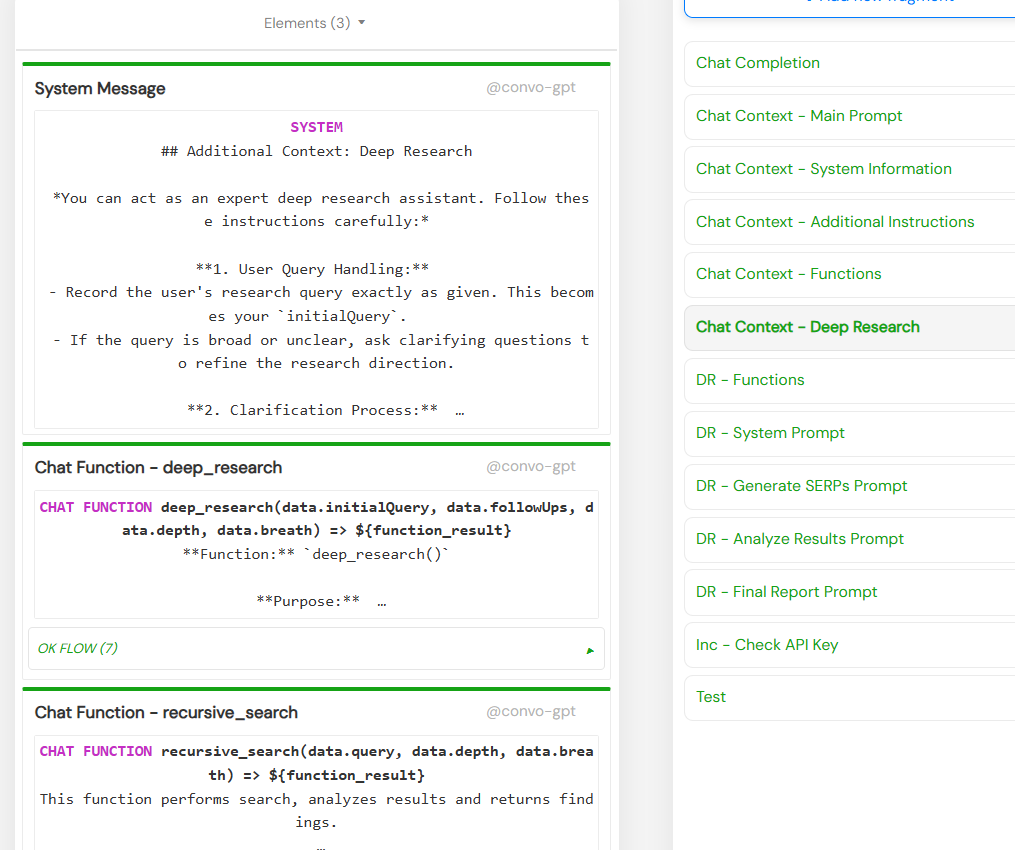
Deep Research Functions
The core Deep Research workflow is built from named functions in the DR – Functions fragment. Each encapsulates one step of the recursive research process:
recursive_research()– Orchestrates the entire workflow by generating queries, fetching and analyzing results, then recursing with refined queries.generate_serp_queries()– Uses GPT to produce targeted search terms in structured JSON format.firecrawl_search()– Wraps the Firecrawl API to fetch up to five pages in Markdown format per query.analyze_results()– Sends combined Markdown content to GPT for extraction of key insights and follow‑up questions.final_report()– Compiles all learnings into a detailed Markdown report with source citations.save_report()– Saves the generated report as a WordPress post, configurable viaREPORT_POST_TYPEandREPORT_POST_STATUS.trim_prompt()– Cleans and condenses raw Markdown by removing boilerplate and invoking a utility GPT call to isolate main article content.estimate_tokens()– Estimates token usage for any string to prevent exceeding GPT’s context limit.
Deep Research Specific Prompts
Deep Research uses four specialized GPT prompts – each defined in its own fragment – to drive the research workflow. These prompts make it easy to customize how the agent generates queries, analyzes results, and compiles reports.
- DR – System Prompt – Establishes the agent’s role and tone. Used by all Deep Research GPT calls.
- DR – Generate SERPs Prompt – Instructs GPT to create targeted search queries. Invoked by
generate_serp_queries(). - DR – Analyze Results Prompt – Directs GPT to extract key learnings and follow‑up questions. Used by
analyze_results(). - DR – Final Report Prompt – Guides GPT to assemble the final Markdown report. Executed by
final_report().
Conclusion
Convoworks proves that even a complex, multi-step AI research workflow can be built entirely through a visual interface – no code required. Every stage of the process can be adjusted on the fly via Convoworks’ drag-and-drop GUI, allowing you to refine search logic, analysis prompts, and report formatting without writing a single line of code.
Beyond the chat interface, Convoworks’ WordPress Hooks and API Builder packages let you trigger the same Deep Research workflow from any WordPress hook or custom REST endpoint – whether that’s a scheduled cron job, a form submission, a mobile app request, or a frontend JavaScript call. This flexibility unlocks seamless integration of AI-driven research into your existing workflows.
We encourage developers to explore:
Related posts
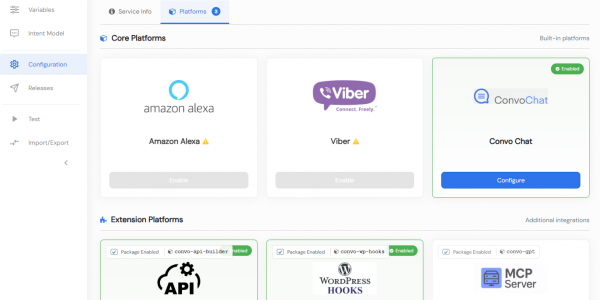
Convoworks WP 0.24 – A Faster, Cleaner Editor on the Road to Version 1
Convoworks WP 0.24.00 enhances the editor with faster navigation, improved component search, and refreshed help documentation. It introduces secure API key storage and service management improvements, while refining the editor’s design for better usability. Deprecated platforms have been removed to streamline the core.
VIEW FULL POST
Convoworks, 2025 – Status and Next Steps
Convoworks started as a voice-workflow tool, survived the collapse of smart-speaker hype, and is now evolving into a modular, AI-first framework for WordPress. This update explains the cleanup in progress, the move toward agent infrastructure and natural-language building, and how you can follow along while v1 takes shape.
VIEW FULL POST